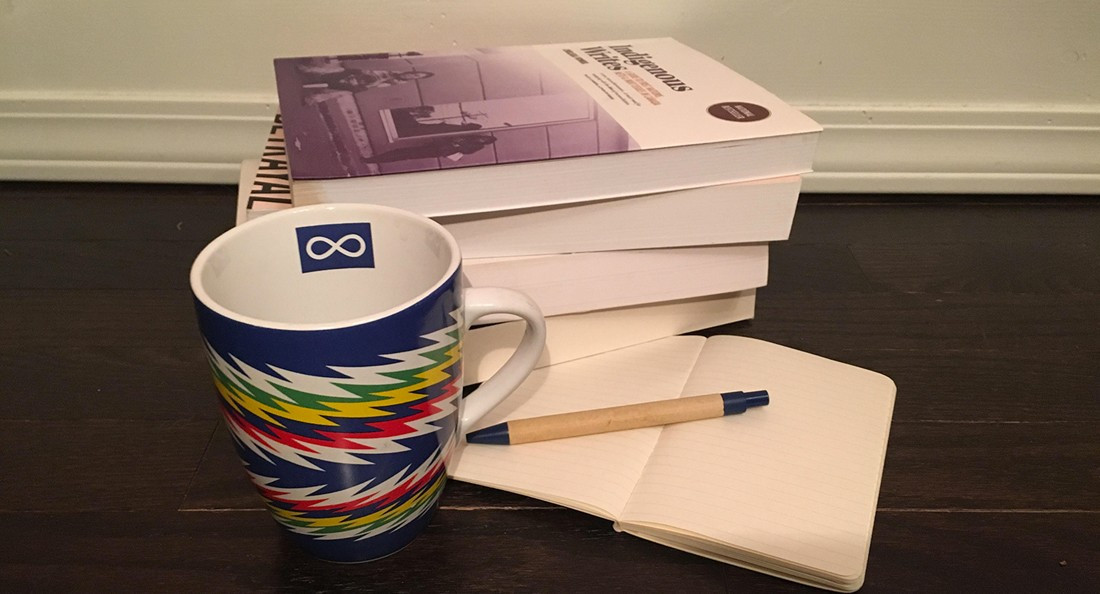In support of Metis students
Manitoba Métis Federation and the University of Winnipeg raise money for bursaries
The University of Winnipeg (U of W) has issued a call for donations to fund bursaries for Métis students. The Manitoba Metis Federation (MMF) has offered to match these donations up to $30,000.
Kevin Rosen, the executive director of marketing and communications for the U of W, says the university has already raised over $16,000 and is aiming to reach $30,000 by the end of April 2019.
Rosen says the Louis Riel Bursary is specifically awarded to Métis students, and other awards such as the Opportunity Fund are designated for Indigenous students.
Rosen says that the U of W has awarded over $3 million overall through the Opportunity Fund, assisting over 3,000 students. The Louis Riel Bursary was also awarded to more than 750 students, totalling more than $1.3 million in financial aid, Rosen says.
Dr. Chantal Fiola, a Métis Anishinaabe U of W professor, says financial aid can play a significant role in Métis students’ success throughout their time at university.
“Unlike some First Nation students with registered Indian status, Métis students do not receive financial assistance from the federal government for post-secondary education,” Fiola says. “Knowing you have help to pay for school takes a big weight off your shoulders and enables you to focus on doing well at school.”
Fiola says Métis students at the U of W can find culturally sensitive support at the Aboriginal Student Services Centre (ASSC) on the second floor of Lockhart Hall on the main campus. These supports include academic advising, free tutoring and skill workshops, student advocacy, access to Elders and much more. The ASSC also provides support for all Indigenous students
“Like other Indigenous students, some Métis students face challenges stemming from the legacy of colonization, which can include poverty, pressing family obligations, issues around housing instability and transitioning to a new environment for school,” Fiola says.
“I believe that there are fewer Métis-specific supports available in Winnipeg and elsewhere than there are for folks with registered Indian status as a result of the federal, provincial and municipal governments’ long history of denying and ignoring Métis rights, services and supports,” Fiola says.
Fiola also says these conditions are likely to improve as key Supreme Court of Canada rulings have been in favour of Métis people in recent years.
In addition to supports like the ASSC and the Louis Riel Bursary, Fiola says individual organizations and institutions could work harder to spread the word about their own Métis-specific supports and services.
“Sometimes, one of the biggest challenges is learning what supports are available in the first place,” she says.
Rosen adds the U of W has a Métis student support liaison officer who joined the ASSC in October.
“His name is Naithan Lagace, and his role is to help students navigate the MMF Citizen Application and to provide information and assistance with sponsorship and bursaries through the Louis Riel Institute,” Rosen says. “He also promotes Métis identity on campus through educational workshops, classroom presentations and invited guest speakers that highlight Métis history, culture and traditions.”
Students who wish to contact Naithan Lagace can visit the ASSC or email him at [email protected]. For more information on donations to support Métis students at the U of W, visit foundation.uwinnipeg.ca/projects/the-louis-riel
Published in Volume 73, Number 14 of The Uniter (January 17, 2019)








